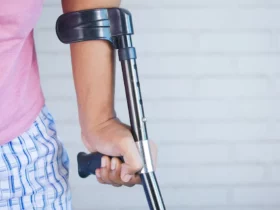In the late hours of a cold winter evening, far from the comforting reach of a fireplace or a cozy lounge, there exists a silent hero, the commercial boiler. In large industrial complexes and commercial buildings, these stalwart systems maintain a steady warmth, crucial not just for comfort but for the continuous operation of indispensable machinery and to ensure the occupational safety and health of the workforce. Understanding and maintaining these resilient workhorses is not just an HVAC engineer’s concern; it’s a necessity for every facility manager and business owner.
This comprehensive guide will provide you with the fundamental knowledge to comprehend and care for your commercial boiler.
Understanding Commercial Boilers
Integrating advanced tracking and management tools is paramount to ensure optimal performance and longevity of these essential heating systems. One standout solution is the Innasol Data Recording and Information System, which was designed specifically for commercial boilers. This system offers real-time monitoring and analysis of boiler operations, assisting in predicting maintenance needs, optimizing energy consumption, and ultimately reducing operational costs. By harnessing the power of this cutting-edge technology, facility managers and business owners can achieve a comprehensive understanding of their heating system’s performance, leading to more informed decision-making and enhanced efficiency.
Types of Boilers
Commercial boilers come in various shapes and sizes, each designed for specific applications. The most common types include:
- Fire-tube Boilers: Known for their simplicity and reliability, these boilers consist of a large water-filled shell with tubes that run through it. The fire passes through the tubes, heating the water and generating steam.
- Water-Tube Boilers: Inversely, water-tube boilers have water-filled tubes that carry water to be heated by combustion gasses. They are typically used for high-pressure and high-temperature applications.
- Electric Boilers: Utilizing electricity instead of traditional fuels, electric boilers are efficient and environmentally friendly, making them a popular choice where access to a fuel supply is limited.
- Condensing Boilers: These are high-efficiency units that extract more heat from the flue gasses by allowing the vapor to condense, lowering energy bills and reducing the environmental impact.
Components and Their Functions
Understanding the key components of a boiler and the role they play is pivotal in being able to troubleshoot issues and ensure proper operation:

Burner
The Burner acts as the initiation point for the combustion process, mixing fuel with air to create a flame that heats the boiler’s water. Its efficiency and operational stability are crucial for the overall performance and energy consumption of the heating system. By regularly inspecting and cleaning the burner, potential issues can be identified and addressed before they impact other components.
Heat Exchanger
The Heat Exchanger is responsible for transferring heat from the combustion gasses to the water. It consists of multiple tubes or plates that provide a large surface area for efficient heat transfer. Any buildup of sediment or debris on the surfaces can reduce the heat transfer, leading to decreased efficiency and potential damage.
Pump
The Pump circulates water throughout the boiler system, ensuring a consistent flow of heated water to meet the building’s demand. A malfunctioning pump can result in reduced heating or even complete system failure.
Controls and Safety Devices
Boilers are equipped with various controls and safety devices to ensure safe and efficient operation. These include pressure and temperature gauges, relief valves, and flame safeguard controls. Regular inspections of these components are essential to prevent malfunctions that could pose a safety hazard.
Maintaining Your Commercial Boiler
Routine maintenance is the backbone of an efficiently operating boiler system. Neglecting it can lead to a range of operational problems, including safety hazards and costly downtime.
Regular Inspections
Regular inspections are crucial for maintaining a safe and efficient commercial boiler system. Covering major components like the burner, heat exchanger, controls, and safety devices helps identify wear, potential failures, or efficiency loss. Clearing blockages in the flue and ventilation system is vital for proper combustion and venting of gasses. With a stringent inspection routine, facility managers can reduce breakdown risks, extend boiler lifespan, and prevent dangerous conditions.
Cleaning Procedures
A clean boiler is an efficient boiler. Regular cleaning of the burner, heat exchanger, and combustion chamber ensures optimal performance by removing any buildup of sediment or debris that can hinder the heat transfer process. Additionally, frequent inspection and replacement of air filters are essential to prevent clogs and maintain proper airflow.
Water Treatment
Water quality plays a critical role in maintaining the efficiency and longevity of a commercial boiler. The introduction of untreated water can lead to scale buildup, corrosion, and, ultimately, system failure. Regular testing and treatment of the water supply is necessary to prevent these issues from occurring.
Troubleshooting Common Issues
Despite diligent maintenance efforts, boilers can still experience issues that require troubleshooting. Identifying and addressing these issues promptly can prevent costly repairs or replacements and ensure the boiler operates efficiently and safely.
Scaling
Scaling refers to the buildup of minerals on the boiler’s internal surfaces, particularly the heat exchanger, which can significantly hinder its efficiency and heat transfer capabilities. If left unchecked, scaling can lead to increased energy consumption and even premature failure of the boiler components. Regular water treatment and descaling procedures are essential to prevent this common issue and ensure the boiler operates at optimal efficiency.
Leaks
Leaks can occur in various components of a boiler, including the heat exchanger, pipes, and valves. These leaks can lead to loss of water or steam, which affects system pressure and efficiency. Routine inspections can detect these leaks early on, allowing for timely repairs and preventing further damage.
Malfunctioning Controls
Faulty controls and safety devices can result in erratic boiler operation, potentially leading to unsafe conditions or equipment failure. Regular testing and replacement of these components are essential for safe and efficient operation.
Pressure Drops
A sudden drop in system pressure may indicate a water leak or a malfunctioning component. If not addressed promptly, it can lead to reduced heating capacity and potential equipment damage. Regular monitoring and prompt detection of pressure drops are crucial for maintaining optimal boiler performance.
Your commercial boiler is a vital asset. Understanding its workings is crucial for facility managers and business owners. Regular maintenance and a proactive safety approach keep it efficient and create a comfortable environment. Enhance your boiler knowledge, train your team to spot issues, and keep detailed records for optimal performance. This ensures a smooth heating experience, which is crucial for productivity and peace of mind.













